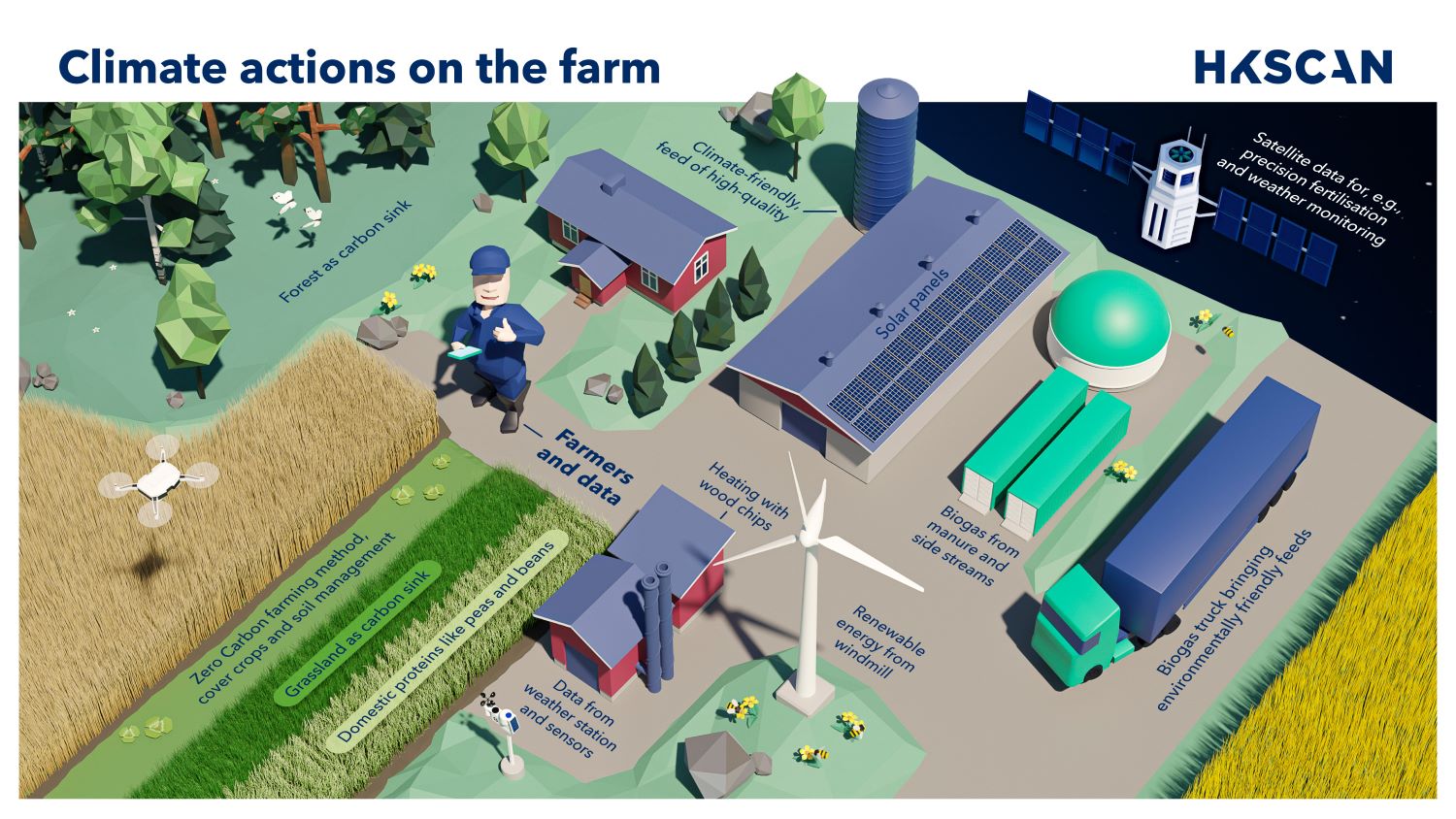HKScan is targeting a carbon-neutral food chain by the end of 2040 at the latest. In 2022, we will continue to develop the food production of the future together with our contract farmers and partners. The work is based on real climate actions and data-driven management.
HKScan’s climate data shows that the greatest carbon footprint in food production comes from production of feed. That is why the promotion of resource efficiency and carbon sequestration in field farming together with our contract farmers are at the heart of our climate actions.
To boost the climate work, in 2022 we will provide our farmers with a digital tool to examine the climate impact of their farms. The first to get access to the tool will be some of Kariniemen farms during the spring.
“Our recent research data shows, for example, that Kariniemen’s farms are doing good climate work and farmers want to be the forerunners of future responsibility work. We have new, farm-specific carbon footprint data from more than 60% of Kariniemen’s farms already at this stage. Our digital service brings a new perspective to the climate work of the food chain, as information and targets and based on farm-specific data,” says Ulf Jahnsson, VP, Strategic development primary production at HKScan.
Numerous ways to produce in a climate-friendly way
A unique, farm-specific carbon footprint data shows that there are differences between the farms and we have a lot of opportunities to find good practices to reduce the carbon footprint of primary production.

In line with the Zero Carbon climate plan, we test new solutions on pilot farms, and the best solutions will be rolled out to all our markets. In the coming growth season, we will continue, for example, to optimise the use of nutrients in fields with satellite technology in Finland and Sweden.
We will also help our contract farmers to increase carbon sequestration in their fields, as carbon sequestration can significantly reduce the climate impact of the whole food chain. Our goal is for fields to sequester 500 kg of carbon dioxide per hectare per year. We carry out carbon sequestration research and development on pilot farms in Finland together with our partner companies.
“We organise climate trainings to provide our contract farmers with practical tips on carbon sequestration and how to reduce their carbon footprint. In addition to climate work, we want to increase farm productivity and promote the competitiveness of local food production,” says Jahnsson.
Further information:
Ulf Jahnsson, VP, Strategic development primary production, HKScan, tel. +358 400 784 193, ulf.jahnsson@hkscan.com





